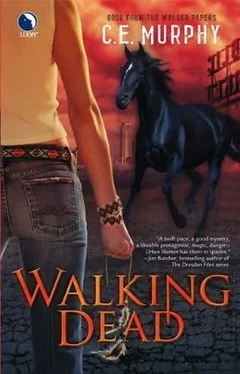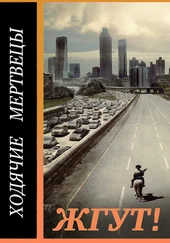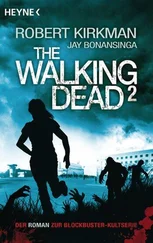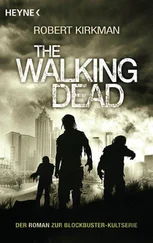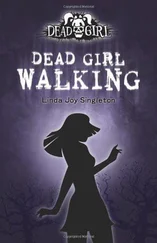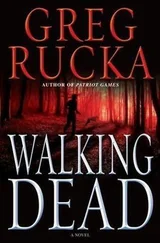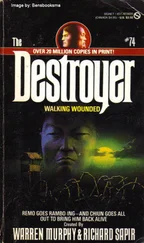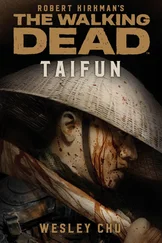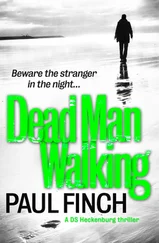Gary’s ears turned redder. I’d never seen him blush. I hadn’t known he could. He’d been the most rock-steady thing in my life the past year, and rocks weren’t known for their ability to get embarrassed. Delight got the better of me and I did get up and dance around, waving my hands and cackling. As far as I was concerned, he deserved every chance at happiness the world could offer.
I got ahold of myself and sat back down. My cheeks hurt from laughing, and poor Gary looked discomfited. I was utterly unaccustomed to seeing him anything but ruggedly suave, and relished the change enough to reach across and pat his hand. “Never mind the third degree. You’re forgiven for not coming to the party.” My eyebrows waggled, entirely of their own accord. “And maybe you didn’t want me calling you at four in the morning anyway. I’d hate to interrupt.”
Gary hid a not-very-convincing scowl in his coffee. “I don’t give you this kinda trouble over your love life.”
My eyebrows, still acting on their own, shot toward my hairline. “Excuse me? Mr. I-rescued-the-phone-number-you-threw-out Muldoon doesn’t mess with my love life? You must have you confused with somebody else.”
He gave me another unconvincing glower. “So when’re we doing your next session?”
“Way to subtly change the subject, Gar.” I picked up my coffee again, studying it like it might have answers. “Probably not tomorrow, unless this thing wraps up before then. Next week, I guess.”
My “sessions” had been going on for months. A couple mornings a week, Gary came over to drum me under, letting me explore the astral plane and the Middle World through shamanic eyes. I was a hell of a lot more confident in my ability to See and to heal than I’d been, and I’d scared up a lot of memories that had been buried in dreams. My spirit guide, Coyote, who turned out to be not so spirity after all, had impressed on a much younger me that one of the essential aspects of shamanism was change. It made sense; healing was a fundamental change, from illness to wellness. At the height of my power, when both myself and my patient fully believed in what I could do, my will alone should be able to affect a healing pretty much instantaneously. I hadn’t pulled out that particular big gun since I’d finally come to understand it, but on a fundamental level, I knew I could.
The trouble was, healing was a one-shot kind of deal. It wasn’t so much good against ghosts or black cauldrons. I had other rabbits in my hat: I’d learned to fight in the real world, and had armor that could travel with me to other worlds, psychic protection against battles that didn’t take place on the physical plane. I could bend light around me so I became much harder to see, but even that came down on the side of parlor tricks when I was going up against ghosts.
I said, “You know,” idly, half forgetting Gary was even there to answer. He grunted curiously in response and I focused on him, a little surprised. “Nothing, really. I’m just rolling around in irony. I step up, and I find out I’m still behind the eight ball. I’ve learned a lot, but I’m starting to think it’s never going to be enough. Once, just once, I’d like to go in basically knowing what I was dealing with.”
“Darlin’, wouldn’t we all.” He stood up and leaned across the table to kiss my forehead. Coffee breath spilled down. I wrinkled my nose, but it turned into a smile as he straightened. “I’ll get out of your hair so you can get to work, but you need me for anything, Jo, you call. Arright?”
“I will.” I got up to hug him, and we walked down to the parking lot in companionable silence.
Billy looked as if he hadn’t gotten enough sleep. I retreated from the precinct building to the Missing O, got coffee and doughnuts, and brought them over in hopes of perking him up. He took a doughnut, managing to be both grateful and imperious as he pointed it at my desk. “I didn’t have to go to Interpol.”
Good little automaton that I was, I went to look, and found three missing-persons reports on top of other paperwork. One was from October 29, 1950, for a Richard “Ricky” David Peterson, age seven, and the other was for twin boys born in August 1999 and reported missing fifteen months later, the day before Halloween. They were all from Seattle. I put my doughnut down, appetite lost, then picked it up and ate it anyway, because I needed more in my system than caffeine. “Anything on Matilda?”
“This is as much as we have on data file.” Billy nodded toward a clock on the wall. “I’ll get Jen in Missing Persons to go through the older records that aren’t digital yet, once she gets in. Shouldn’t take long, we’ve got a pretty clear window for death or disappearance. You could hit the archives and check the microfilm for news stories.”
“Okay.” I took my doughnut, my coffee and the missing persons files and went to Morrison’s office, then stood outside it frowning at the doorknob. I was reasonably certain his office didn’t have much in common with the archives, although the idea of a zillion rolls of microfilm cluttering up his tidy desk and neat bookshelves pleased me.
“Can I help you with something, Walker, or did you just want to stand around in the way all morning?” Morrison spoke from behind me, a droll note to what once would’ve been a wholly acerbic question. I flinched anyway and narrowly missed spilling hot liquid all over myself a second time. Too much coffee, too little food. I couldn’t quite remember the last time I’d eaten something that wasn’t in the doughnut family.
I said, “We have this case,” somewhat inanely, and waved the papers at him. He rolled his eyes and gestured me into his office ahead of him. I went in and sat down; he came in, shrugging off the seaman’s coat he usually wore in the winter, and hung it by the window. His hair was light brown, like he’d washed it six or eight times since Saturday night and the temporary coloring had almost, but not quite, let go its hold. I waved my fingers at it. “You’re going to have to grow the rest of that out, you know. It’s going to stay discolored.”
“You never struck me as the type who knew a lot about hair-coloring products, Walker.” Morrison unbuttoned his suit jacket and sat down behind his desk, hands folded over his chest. He looked younger. Dark brown hair had been disconcerting and profoundly wrong, but light brown took five or six years off, turning him from an aging superhero to one in his prime. I could imagine him blond, now, and it kind of worked.
I was sure he’d be terribly relieved to hear that I’d decided his natural hair color was satisfactory. I sighed at myself and leaned forward to push the files at him. “These are part of the ruckus at the party. There was a murder yesterday at the—”
“Cultural Arts Museum. I know. Are they related?” He picked the papers up, but he watched me.
“I think so. I just don’t have proof yet. And if I get any it probably won’t be the kind you can present in court.”
He gave a noncommittal grunt and glanced at the files. “This is from the fifties, Walker.”
“And the other ones we’re looking up are from the turn of the century—the last two centuries—and 1850.”
I had to hand it to the man. He didn’t bat an eyelash. I guessed he’d meant it when he’d assigned the weird and wacky cases to Billy and me. If we were looking up missing persons from a century ago, it seemed he trusted that was what we needed to do. All he said was, “Yesterday’s security guard doesn’t fit that pattern.”
“Yeah.” I pushed a hand through my hair and got up to go stare out his window. Morrison had a great office. Two walls were windowed, one looking over the parking lot and street, the other looking over the main precinct office area. Usually the latter was open, but he hadn’t yet pulled the blinds, so we had a modicum of privacy. Or we would have, if I hadn’t put myself at the outside window to show everybody I was there. Raindrops clung to his seaman’s jacket, close and cool enough to make hairs rise on my arms. “I don’t think there’ll be another matching murder for another forty-whatever years.”
Читать дальше
Конец ознакомительного отрывка
Купить книгу
